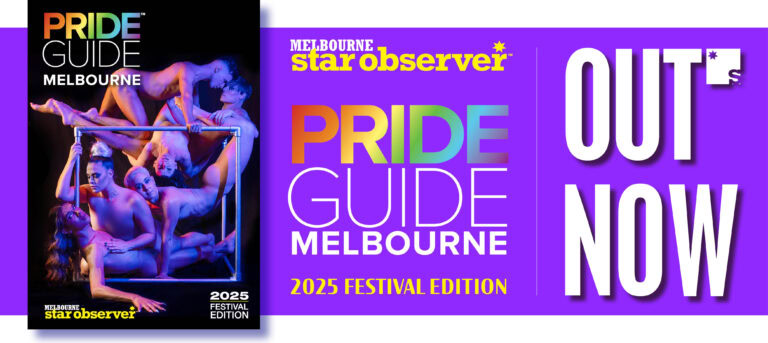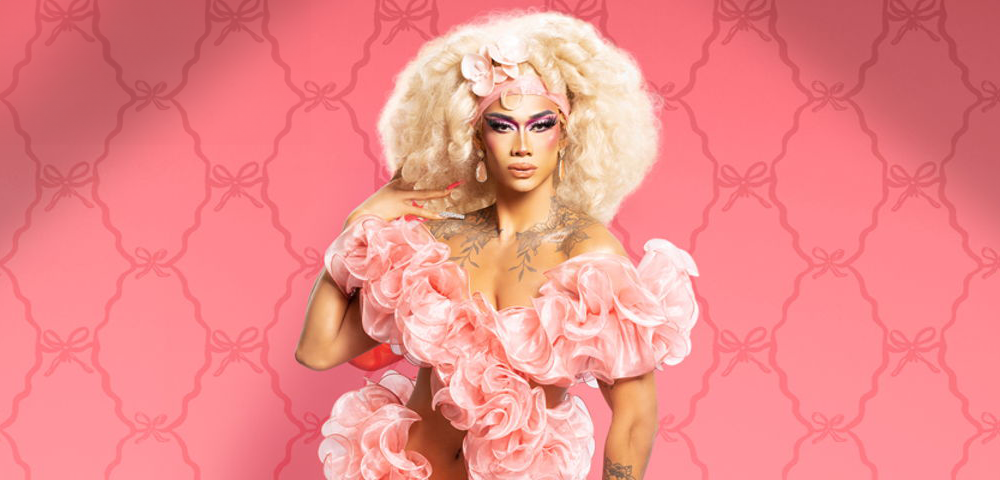
Our life during wartime
A single white singlet in a sea of bare chests and left-over-from-Sleaze khaki raised a few eyebrows at Sunday night’s Queer Nation party. The singlet had the words NO WAR written across the front and my girlfriend was wearing it.
She made the T-shirt last week as a personal protest against the seemingly inevi-table war in Iraq, and after seeing a news report on the lack of action against the prospect of war.
Reactions to the simple statement varied on the night, from, Politics and dance parties? How novel, to what could have been drug-induced supportive smiles.
The gay and lesbian community has a long history of protest -“ against war as well as social injustices. So where are the marches this time?
Long-time gay rights activist Rodney Croome remembers writing a letter to the prime minister more than a decade ago during the first war on Iraq.
In 1992 the Tasmanian Gay and Lesbian Rights Group wrote a letter to the prime minister and said we opposed the war, and as far as I remember other gay and lesbian organisations did the same. I believe it would be to our dishonour if we didn’t do it again, Croome told the Star.
A lack of organised opposition did not cover the gay and lesbian community with an apathetic blanket, Croome said. But the reaction was different this time -“ people were working individually rather than within gay and lesbian community organisations.
I’ve detected a much stronger and more general opposition to war in Iraq both in the gay and lesbian community and more broadly than in the previous wars. In terms of grassroots activism the most visible form of opposition is in the queer campus groups in the universities. But less visibly there are many gay and lesbian people involved in campaigning, in political parties, churches, community groups that we don’t always see.
I’ve been impressed, in the past two months especially, by the number of people working behind the scenes. I don’t think we should despair about grassroots involvement.
But there was still a need and a responsibility for gay and lesbian community and political organisations to back anti-war movements, he said.
War is an evil which the gay and lesbian should not tolerate, he said.
I think there is a role for gay and lesbian organisations to speak out on broader issues that affect the community, especially war. As far as I know, no gay and lesbian groups have done that, except the Metropolitan Community Church.
The effects of war are not only economic, and are not only felt in the countries being bombed. History has shown that groundswells of nationalism stymie movements towards equal rights for minority groups. Croome said he believed another war would see such nationalism return to Australia to the disadvantage of the gay and lesbian community.
For gay and lesbian people in the Middle East such groundswell could mean discrimination to the point of death.
War in the Middle East will make life that much more unbearable for gay men and lesbians living in these countries because of an increase in Arab nationalism. You have to look at what happened in Serbia during NATO attacks in Belgrade. The state forces attacked gay and lesbian people. The same thing will happen in Iraq and possibly the neighbouring countries, he said.
As bad as it will be for us to be subjected to greater nationalistic chauvinism, it will be even worse for people in those countries.
The backlash against the Middle East has already been felt by Muslim people -“ regardless of whether living in an Arab nation or not -“ in the wider community. As a gay Muslim man, Mahdi Nor believes a war will make people less tolerant of people of different religions.
Nor works for the AIDS Council of South Australia, and is involved with people seeking asylum in Australia because of the anti-homosexuality laws in their homelands. He himself is in Australia with refugee status after his application spent more than four years in process.
Hopefully America doesn’t go to war with Iraq. I expect to face discrimination simply because of my appearance and because I still practise my religion, Nor says.
And he expects the discrimination could come both from inside and outside the gay and lesbian community.
It’s hard for me to say, but within the gay community there are aspects of discrimination. By my being different and with the war about to happen it will make my life different -“ it’s going to create a lot of issues within both the gay community and the wider community. I haven’t experienced discrimination until now, but I don’t doubt it will happen.
The Australian Senate’s two openly gay men -“ Bob Brown from the Greens and Brian Greig from the Democrats -“ have been lone voices of war opposition in the federal parliament.
Brown issued a press release earlier this week stating Australian soldiers should not be involved in what is basically US domestic politics.
This situation again underscores the urgent need for a full, open Senate inquiry into Australia’s involvement in the looming Iraq war, Brown said.
And Greig told a recent meeting of the Sydney Media Club he had seen no case for military action in Iraq.
A first strike is an attack. The Democrats do not support the notion that the people of Iraq should be attacked, Greig told the meeting.
Political and social activism has always been a popular pursuit on Australian university campuses. The current crop of queer students has been campaigning since the US declared war on Afghanistan last year.
Rathana Chea, one of the state convenors of the Queer Students Network, said while there was a high level of political conscience about the war on Iraq, it hadn’t developed into on-the-ground activism yet.
I think there is political activism in younger gay and lesbian people and I think it’s largely ignored by what I would call the -˜older generation’, Chea said.
What we call the third wave of queer activism is largely tied to the anti-capitalist movement, he said, and the media coverage of those protests usually only showed the violence.
Chea agreed the war could have a negative effect on the gay and lesbian community through reinforced heterosexism -“ as it always does.
War always makes people say things like -˜people need families’ -“ but it’s just another excuse.
Chea was one of six gay, lesbian and queer community organisation representatives to sign an open email letter against the war on Iraq.
On the other side of the fence, gay academic Dennis Altman suggested the whole idea of gay and lesbian demonstrations against a new Gulf War was stupid. Altman also said the idea of the gay and lesbian community as a group of people more socially conscious than the wider population was outdated and ignorant, and the idea of a story about the effect of a war on gay and lesbian people was the most stupid thing [he had] ever heard.
If there is a war, I don’t think it will have any different effect on gay and lesbian people than on anyone else, he said.
Â
Mahdi Nor is one of a panel of speakers at a Refugee Forum in the Adelaide Feast Festival. The Festival runs from Friday 8 November to Sunday 1 December, and the program is available online at www.feast.org.au.









